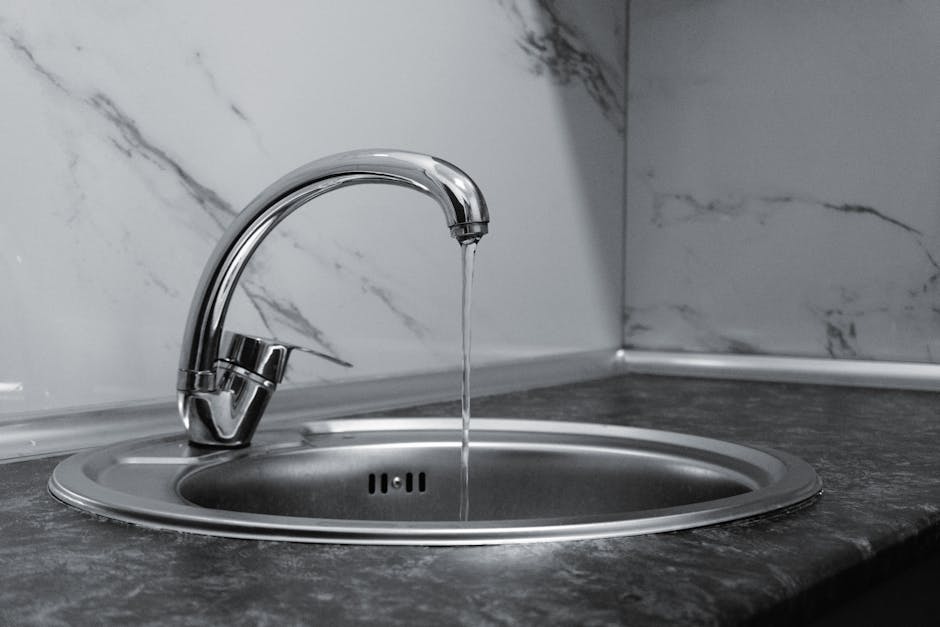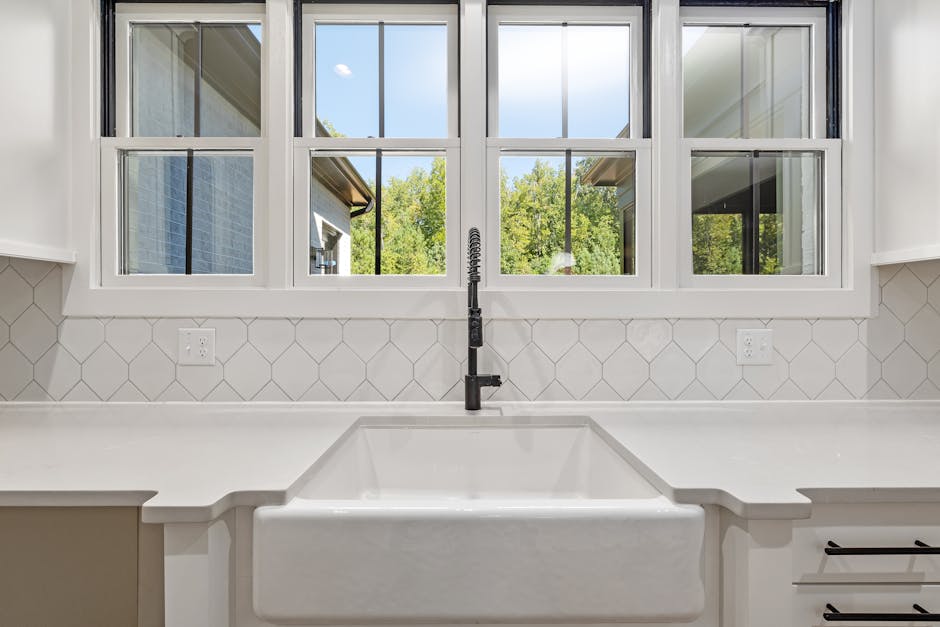.jpg)
Common Signs You Need Folsom Air Quality Services
In Folsom, where seasonal changes and specific environmental factors can impact our living spaces, recognizing the signs of poor air quality is the first step toward a healthier environment. Many of these signs are directly or indirectly linked to your home's plumbing system. Persistent musty or damp odors, for instance, are a strong indicator of hidden moisture or mold growth, often originating from leaks or condensation within your plumbing.
Visible mold growth on walls, ceilings, or around plumbing fixtures such as sinks, showers, and toilets, is another undeniable sign. While surface mold can be easily cleaned, its recurrence points to an underlying moisture problem that needs professional attention. Beyond the visible, your family's health can be a significant indicator. An unexplained increase in allergy symptoms, persistent coughing, sneezing, skin irritation, or respiratory issues among household members might suggest airborne irritants like mold spores, dust mites, or even sewer gases are present in your indoor air.
Unexplained structural damage, such as peeling paint, warped baseboards, buckling floors, or soft spots on drywall, especially near bathrooms, kitchens, or laundry rooms, almost always points to an ongoing water leak that will inevitably affect air quality by fostering mold and mildew. Foul, rotten-egg-like smells often indicate sewer gas leaks, which can be both unpleasant and hazardous. Finally, excessive condensation on windows, cold pipes, or persistent high humidity readings inside your home suggest a moisture imbalance, which plumbing leaks can contribute to significantly, creating the perfect breeding ground for airborne contaminants.
Why Folsom Homes Experience This More Often
Homes in Folsom and the surrounding Sacramento area face unique challenges that can exacerbate indoor air quality problems, many of which trace back to their plumbing systems and the local environment. Our climate, characterized by scorching, dry summers often exceeding 100 degrees Fahrenheit, followed by cooler, sometimes damp winters, creates a dynamic environment that stresses home systems. The intense summer heat means air conditioning units work overtime, producing substantial condensation. If AC condensate drains become clogged or improperly installed, this excess moisture can back up, leading to water damage and ideal conditions for mold growth within walls, attics, or crawl spaces.
Folsom's water supply is known for being moderately hard. While not a direct air quality issue, hard water can lead to mineral deposits in pipes, fixtures, and appliances. In systems like whole-house humidifiers, these deposits can create an environment conducive to bacterial or fungal growth if not properly maintained, indirectly releasing particulates into the air. Additionally, older homes in Folsom, often part of well-established communities, may have aging plumbing infrastructure. Decades-old pipes, seals, and fixtures are naturally more prone to leaks, cracks, and deterioration. A small, slow leak can go undetected for months or even years, steadily contributing to moisture accumulation behind walls or under floors, severely impacting indoor air quality.
The region's clay soil, common in Folsom, presents another significant challenge. Clay soil is expansive; it swells when wet and shrinks when dry. These constant shifts can put immense pressure on underground plumbing lines, leading to cracked pipes, broken sewer lines, or slab leaks. A hidden slab leak not only wastes water but continuously introduces moisture directly into your home's foundation, creating a perfect habitat for mold and mildew that permeates the entire living space. Finally, many modern Folsom homes are built to be tightly sealed for energy efficiency. While beneficial for heating and cooling costs, this can inadvertently trap indoor pollutants and excess moisture if there isn't adequate ventilation or if plumbing leaks are present, circulating contaminated air throughout the home.
What Happens If You Ignore the Problem
Ignoring signs of poor indoor air quality, especially when linked to plumbing issues, can lead to a cascading series of detrimental effects on both your health and your home's integrity. From a health perspective, prolonged exposure to mold spores, bacteria, dust mites, and sewer gases can trigger or worsen a wide array of respiratory problems. Individuals may experience persistent allergies, asthma exacerbation, chronic coughs, sneezing, nasal congestion, headaches, fatigue, and even skin irritation. Children, the elderly, and those with compromised immune systems are particularly vulnerable to these airborne contaminants, facing more severe health consequences.
Beyond health concerns, the structural damage to your home can be extensive and costly. Undetected and untreated plumbing leaks continuously introduce moisture into structural components, leading to wood rot in framing, subflooring, and joists. Drywall can soften, crumble, and become discolored. Flooring materials, whether hardwood, laminate, or carpet, can warp, buckle, or delaminate. Insulation saturated with water loses its effectiveness and becomes a breeding ground for mold, requiring complete replacement. This ongoing moisture can also compromise the structural integrity of your home, leading to costly repairs that far outweigh the initial investment in addressing the plumbing problem.
Frequently Asked Questions
What causes mold in my Folsom home?
Mold growth in Folsom homes is almost always a direct result of excess moisture. Common plumbing-related causes include leaky pipes (visible or hidden), faulty seals around showers or toilets, overflowing drains, AC condensate drain issues, slab leaks, and poor ventilation that leads to condensation buildup. Essentially, any unchecked water source can lead to mold.
How do I know if I have a hidden water leak?
Signs of a hidden water leak often include persistent musty or earthy odors, unexplained water stains on walls or ceilings, unusually high water bills without increased usage, the sound of running water when no fixtures are on, warm spots on floors (indicating a hot water slab leak), or visible changes to flooring or paint that suggest water damage.
What are the dangers of sewer gas in my home?
Sewer gas, which often smells like rotten eggs due to hydrogen sulfide, can pose several dangers. While low concentrations primarily cause unpleasant odors, higher concentrations can lead to headaches, nausea, dizziness, and respiratory irritation. Methane, another component of sewer gas, is highly flammable and in extreme, rare cases, can pose an explosion risk if it accumulates in confined spaces.
Can hard water affect my indoor air quality?
Indirectly, yes. Folsom's moderately hard water can lead to mineral deposits (limescale) in various plumbing components and appliances. In systems like humidifiers or evaporative coolers, these deposits can create conditions that foster bacterial or microbial growth if not regularly cleaned. When these systems operate, they can aerosolize these particles, potentially affecting indoor air quality. Additionally, excessive mineral dust can be produced from hard water deposits in some contexts.
How often should I check my plumbing for air quality issues?
It's advisable to perform a visual inspection of exposed plumbing (under sinks, around toilets, water heater area) annually, or immediately after any major water-related incident. Consider having a professional plumbing inspection every 2-3 years, or more frequently if your home has older plumbing or you notice persistent issues. Early detection is key to preventing major air quality problems.
Is a DIY approach to mold remediation safe?
For very small, superficial patches of mold (less than 10 square feet) caused by a simple leak, a DIY approach with proper personal protective equipment might be feasible. However, for larger areas, hidden mold, or mold resulting from significant water damage, professional mold remediation is strongly recommended. Attempting to clean extensive mold without expertise can release more spores into the air, spread the contamination, and pose health risks.
What role does ventilation play in indoor air quality?
Ventilation is crucial for indoor air quality. It helps remove airborne pollutants, controls humidity levels, and prevents the buildup of moisture that can lead to mold and mildew. Proper ventilation ensures a constant exchange of stale, contaminated indoor air with fresh outdoor air, diluting pollutants and maintaining a healthier living environment. In bathrooms and kitchens, plumbing-related activities (showers, cooking) generate significant moisture, making exhaust fans vital.
Why do P-traps dry out, and what happens then?
P-traps (the U-shaped pipe under sinks) contain a small amount of water that acts as a seal, preventing sewer gases from entering your home. They can dry out due to infrequent use of a fixture, evaporation in hot climates (like Folsom's summer), or issues with vent pipes. When a P-trap dries out, the water seal is broken, allowing unpleasant and potentially harmful sewer gases to enter your living space.
Can plumbing issues contribute to respiratory problems?
Absolutely. Plumbing issues like leaks can lead to persistent dampness and mold growth. Exposure to mold spores is a common trigger for respiratory problems, allergies, and asthma. Additionally, sewer gas leaks can cause symptoms ranging from headaches and nausea to more severe respiratory distress in sensitive individuals. A damp indoor environment also supports dust mite populations, another common allergen.
How can Always Affordable Plumbing help with Folsom air quality?
Always Affordable Plumbing specializes in identifying and resolving plumbing-related issues that impact indoor air quality. We offer expert leak detection and repair, targeted mold remediation services where plumbing is the cause, sewer gas detection and repair, and advice on humidity control solutions. Our goal is to eliminate the source of moisture and contaminants to ensure your Folsom home has clean, healthy air.
Are there specific plumbing issues common in Folsom that affect air quality?
Yes, Folsom's local conditions often highlight certain plumbing issues. These include slab leaks caused by the shifting clay soil, which introduces persistent moisture under homes. Additionally, aging pipe systems in many established Folsom neighborhoods are more prone to leaks. The hot summers also make AC condensate drain issues a frequent contributor to indoor moisture and related air quality problems.
What are the signs of a serious plumbing leak impacting air quality?
Signs of a serious plumbing leak significantly affecting air quality include extensive and rapidly spreading water damage, a strong and persistent musty odor throughout your home, visible mold growth covering large areas, very high indoor humidity levels that are difficult to control, and unexplained spikes in your water bill. These indicators suggest a substantial, ongoing moisture problem that requires immediate professional intervention.
Other Blogs
Customer Testimonials
See what our satisfied customers have to say about their experience with Always Affordable
Plumbing & HVAC.
Latest Blog Posts


Keeping Your Home's Pipes Pristine: Residential Drain Cleaning in Sacramento, CA






